Packed To The Rafters’ Hugh Sheridan addresses rumours about sexuality
In a powerful essay and his most honest interview yet, actor Hugh Sheridan is for the first time openly addressing why he never engaged the media despite years of rumours and gossip about his personal life and sexuality - until now.
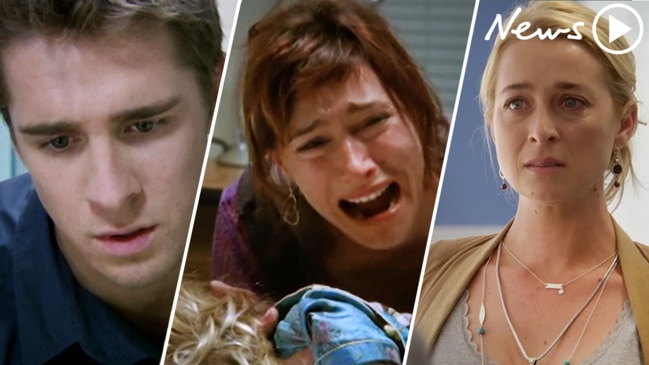
Stellar
Don't miss out on the headlines from Stellar. Followed categories will be added to My News.
It’s a Friday afternoon and Hugh Sheridan has just wrapped a publicity photo shoot for Back To The Rafters, a reboot of the beloved TV drama that will stream on Amazon Prime Video next year.
But before he can knock off for a glass of wine, he’s on the line with Stellar, having a conversation he may never have needed to have had he not landed the life- and career-changing role of Ben Rafter when he was 22.
And this time, the now 35-year-old has more to share than the usual platitudes of being reunited with old castmates or what to expect when the show airs.
“This is a slightly more important interview than ones I’ve done before,” he says.
While he’s audibly nervous, he need not have worried. For the next hour, Sheridan eloquently and sensitively explains why he’s kept his sexuality hidden in the past, and why the time is right to talk about it now.
You’ve never openly talked about your personal life or your relationships with the media. What’s changed?
I’ve never felt I really knew who I was and I didn’t like the sounds of the labels that people were giving me so I decided to say nothing. But lockdown gave me time to reflect and it occurred to me that no-one ever sticks up for people who don’t pick a label.
Where’s the person who’s older than me who stepped out and said, “Some people are working things out slower than others”? I want to be that person and speak on behalf of people who feel like they’re in that grey area.
Also, last week was World Mental Health Day and National Coming Out Day. I think it’s poignant timing – this shows there’s no one day to talk about your feelings.
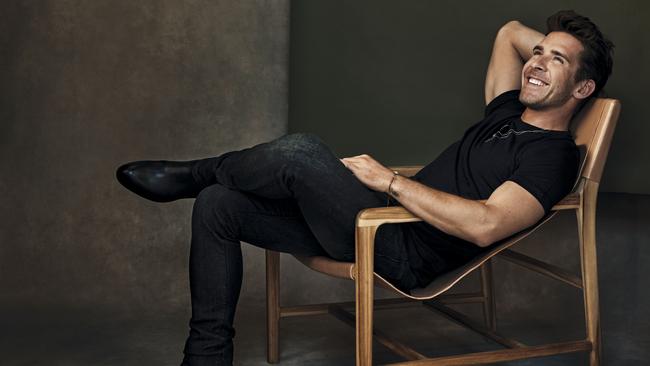
What are you coming out as?
As a human being. People will read this and say, “He’s not coming out. He’s bisexual. He’s asexual. Or non-binary. Or queer. Or fluid.” There are all these words that didn’t exist when I was younger and maybe if they had, they would have helped.
But the fact that these labels keep popping up indicate there must be a lot more people out there who feel how I feel – like the words still don’t fit. Maybe this is also my way of letting people know that I’m still single, and everyone is on the smorgasbord [laughs].
Have you struggled with mental health issues in your life?
The first time I suffered depression and was prescribed medication was when I left home at 16 to go to The Australian Ballet School. But I’ve struggled my whole life with feeling like I didn’t fit in, with feeling bullied, with feeling like people misunderstood me.
When did you first feel like you didn’t fit in when it came to your sexuality?
From a very young age. I was dressing up at every family event to entertain people. At school I was openly bullied and called “faggot”. But the funny thing was, I was desperately in love with two girls. I actually wished I was the names I was being called – that would have been easier.
Then when I was much older and finally met a guy I liked, I was really happy. I felt like I could finally say, “I am what you called me.” But I soon realised that wasn’t the end of my story.
You were advised early on to hide your sexuality in order to stay employed. What impact did that have?
Figuring out that I connected with the same sex the way I did the opposite sex was almost a relief, so that advice was confusing. I now know that they were coming from a place of caring.
The way it was explained to me was that women wouldn’t want to pay to see a movie or TV show if they knew they couldn’t have sex with the leading man. And it made me angry. It had taken me that long to meet a guy I liked that I didn’t want to hide it and I didn’t feel the need to. So I was loud about it.
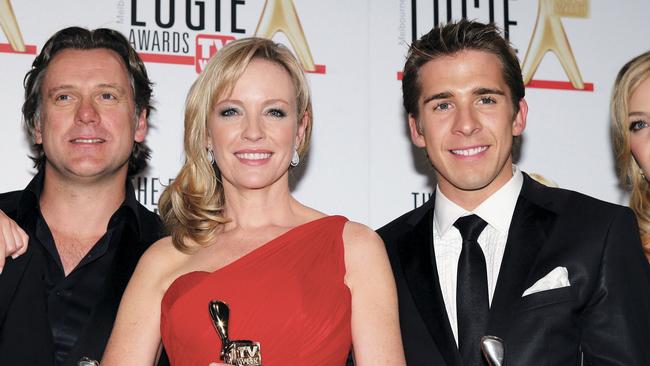
So what happened when you were cast in Packed To The Rafters a year later?
The biggest change was that my heart got broken and then I ended up back in a relationship with a girl. But I was too embarrassed to tell anyone because I’d been so happy to tell everyone I was with a guy.
When I did get the part, the show’s publicist asked, “Do you want to talk about your private life?” I remember thinking, “If I choose a label now, then that’s it. And if I choose a label that isn’t straight that label will be written after my name in every story.” So I said I’d rather not talk about it.
It seems like that role was both a blessing because of the show’s success, and a curse because of the pressure it put you under?
I was working as a house painter when I was cast and it’s an unusual feeling to go from someone who’s catching the train to work because they can’t afford a car to suddenly having every single person in the country know who you are – one in three people watched the show!
But playing Ben Rafter for so long has helped me understand that my sexuality – whether I was with a guy or a woman – has never informed my personality.
How have you hidden your relationships from the media?
From the start it felt like some people were out to “out” me when I was with a guy. I’d read gossip columns that would say, “Famous Australian actor goes to event and his boyfriend stands five feet behind him.”
It hurt a lot. There have been some really hard times. I hope my story will eventually lead to people not wanting to “out” others – because they may not know themselves, or have told their families, or are necessarily going to stay with that gender for the rest of their lives.
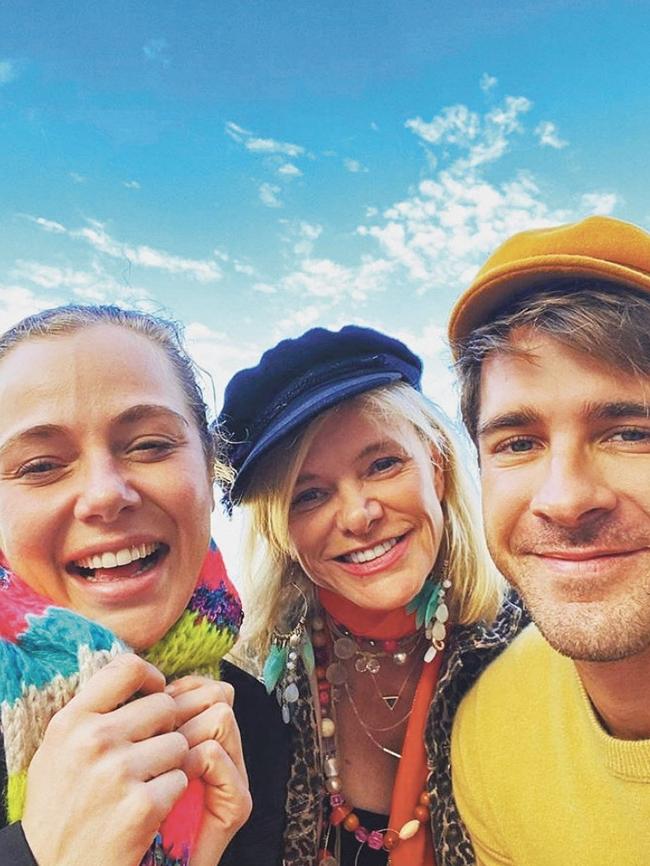
You’re close friends with Jessica Marais, who’s battled her own mental health challenges. While hers have been public, yours remained private. How do you support each other?
I love Jessica so much. We’ve gone from uni to playing brother and sister, and have such a special friendship. I’ll always be there for her, and if I really need her I know she’ll come through for me, too. It’s a beautiful friendship.
Will the things you’ve discussed in your essay come as a surprise to family and friends?
God, no. I’m not hiding from my friends and family. I’ve hidden from the public purely from the standpoint that I don’t know the answers myself. I felt that by not saying anything I was setting an example that you shouldn’t have to say anything. But I’ve also realised that not saying anything means that people assume I’m ashamed.
I realised I had to say, “Hey, I’m happy! I’m just working it out.” If people want to make this black and white then they’d say, “Hugh is bisexual.” But what I want to say is, “I’m literally taking each day as it comes. I’m only human and that’s fine with me.”
What do you say to people who will read this and say, “We knew!”?
I say, let up. Many of my close friends found their labels, be it gay, straight or another, and that’s amazing for them. I celebrate their pride and stand alongside them always.
I’ve decided that, for now, “human” is the word that best fits me – it’s inclusive and ever-changing with no expectation on my part. I’ve learnt to embrace that, my humanness. I’m OK with who I am. I’m happy.
You’ve started The Human Renaissance Project, which will see you hosting group discussions about labels and identity. How important is this work to you?
The project is about celebrating our shared humanity, it’s a rebirth – a “renaissance” – of a conversation around how we see each other. And that starts with how we choose to see ourselves. And accept ourselves.
In our culture there’s this idea that you need to have figured out who you are at an early age, but I think it’s OK to take your time. I’m happy to admit that I don’t know the answers but I do know that I love everyone. I’ve always known that. I just didn’t know how to word it before.
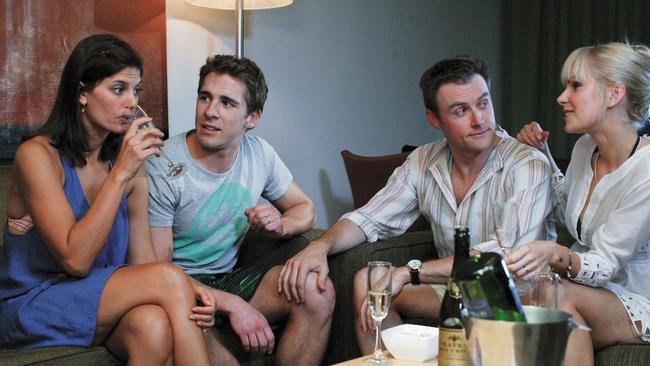
HUGH’S LETTER
He became the golden boy of Australian television when drama series Packed To The Rafters hit the airwaves in 2008.
But along with the overwhelming public adulation, starry red carpets and raft of awards that came his way, actor Hugh Sheridan was also forced to grapple with intense scrutiny and speculation about his public life – and who, exactly, he went home to when the cameras stopped rolling.
Now, in a powerful first-person essay and interview, the 35-year-old Logie Award winner reveals for the first time how years of conflicting advice from mentors and friends, the national campaign for marriage equality and meaningful romantic relationships with men and women finally helped him reach a point of peace with his sexuality.
The leading cause of death among young people remains suicide, and I believe that’s mostly due to the expectation and pressure handed down through the generations. It’s completely wrong and no longer working for many.
People need to know that they are, in fact, OK as they are. They are more than enough. That’s why I’m sharing this story.
When COVID started I took the opportunity to pen The Dance, a semi-autobiographical screenplay.
Every character in the film is a facet of myself, and through the process of reliving memories and writing about brave characters and teenagers who don’t think they’re strong but endure so many tough life experiences, I accepted that everything has led me to this moment.
I realised that along the way, I’d forgotten how brave I was. I found myself, in my mid-30s, single and feeling trapped in an airtight box with no light – one I’d learnt to live with and forgotten I was in.
Every day it seems there are new labels popping up to identify those around us. I still can’t find one that fits me.
Love has always come in so many different forms to me. I love people who inspire me. Not all love is sexual, and I don’t think people always understand that. The fact is, I love many different people for many different reasons.
As I get to know someone romantically, I’m not interested in their age, gender, sexuality, or religion. I’m interested in connecting on a human level. Sexuality has always been very secondary to me. In a way, I now feel very blessed.
But I also now feel a tremendous responsibility to speak out, to help people understand and not look at others with judgement, or think people are lying, or hiding, or shying away.
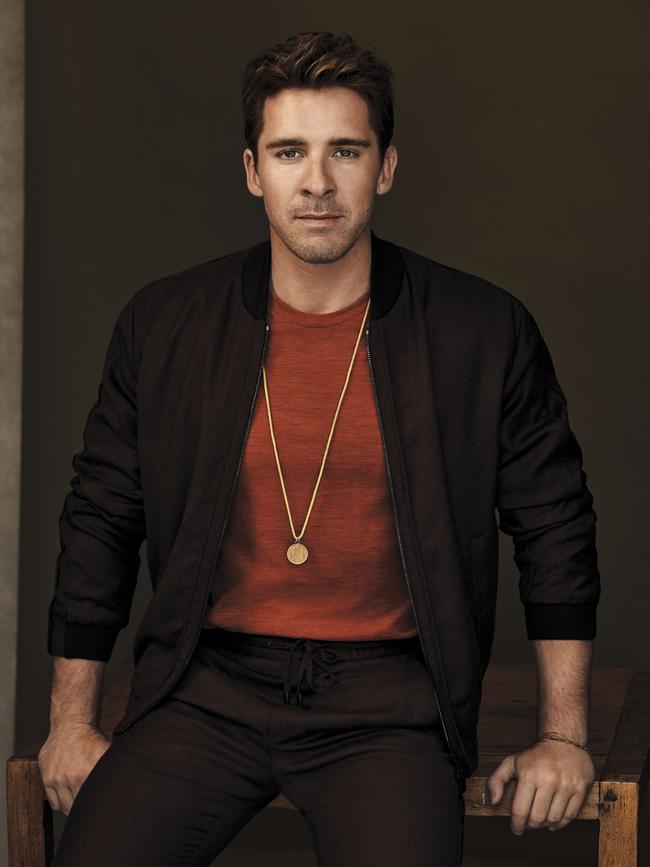
Some choose to live their true selves privately. Maybe it’s sacred, or too intimate, or maybe some are exploring in their own way. Everyone’s journey is unique. No-one has the right to tell someone else’s story, so here’s mine.
As a young boy in Adelaide, I was sensitive, and was dressing up to entertain people from as early as I can remember. Now that’s my job.
I began at an all-boys school, where I was bullied from start to finish. My only friend at school camp was a girl and I remember an adult carer yelling at me: “IT’S NOT NORMAL!”
The words stuck, and a dark and lonely time followed. But the labels so graciously bestowed upon me in primary and middle school felt misplaced because I was never attracted to the same sex, even though part of me felt like that would be easier.
I eventually left Adelaide for The Australian Ballet School in Melbourne, where, at 17, I experienced first love and a broken heart with a girl who I might have married. In retrospect, I was too young to be engaged.
Later, after moving to Sydney to attend NIDA, I finally met a guy who I connected with emotionally, mentally and physically. I was over the moon – I could finally be what people always wanted me to be, so I told everyone.
In return, I was told that if I was anything but straight I’d never find work, and that I needed to hide my new-found love. To add to the confusion, the two mentors who told me this were openly gay themselves; they were earnestly trying to protect me and did indeed have my best interests at heart. That was just the reality.
It was well known that if an actor was open about their private life and wasn’t conforming, they wouldn’t land the leading roles. The sentiment shattered me because I finally thought I knew who I was. I actually became an activist at that point. I was really out, loud and proud.
Ultimately, my heart was broken again. I went on to fall in love with a woman but I was too embarrassed to tell anyone because I’d made such a fuss about my same-sex relationship. “You can’t be both,” some would say. “You’re confused.” No sh*t! At that point I began to be more selective with whom I shared my world.
I was in no way mentally prepared for what would happen when Ben Rafter made his entrance on Aussie TV. At 22, I was back in a relationship with a guy. As I’d been been fairly open prior, some people cottoned on and wanted to know “my deal”.
But tormented by the recurring idea of being labelled when I wasn’t even sure myself, I decided it was best to be private. My world became smaller but my love became bigger, and our relationship more sacred and special for it.
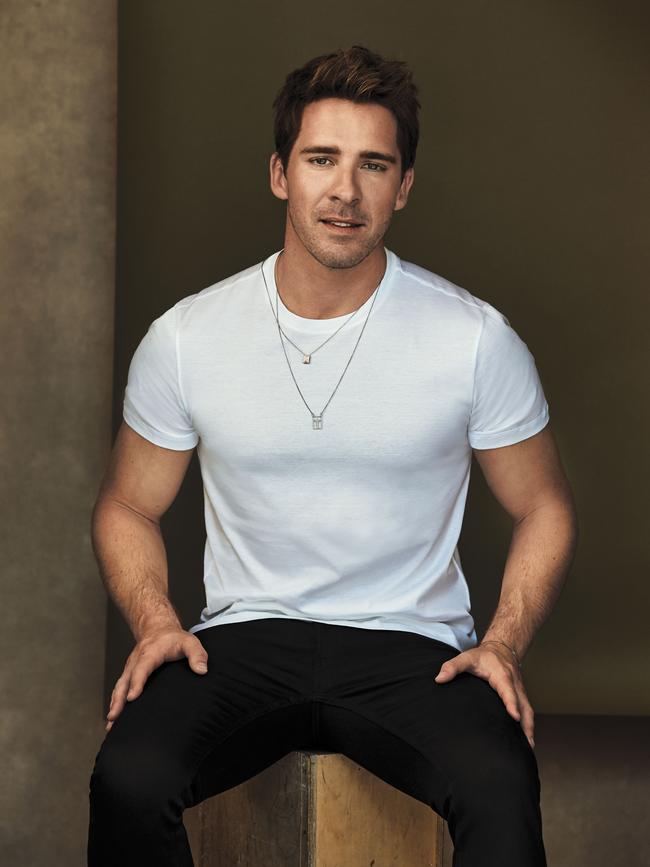
Despite those first few years in the public eye being full of moments of great confusion and depression, we got through it. Eventually, I earned mutual respect and confusion from the media. I thank them for that now.
What saddened me about my decision were the people who came out of the woodwork to implore: “You should be out there protesting for equality, Hugh.” To which I replied, “I am! My silence is my protest.”
When the marriage equality vote loomed in 2017, I thought I should be honest about the relationships I’d had in the past. I approached a friend who worked with the LGBTQIA+ community, only to be asked not to come out at that moment.
“You’ll have more of an impact and effect with those on the fence as a neutral voice. You’re someone who people respect and relate to regardless of anything – everyone else is already flying the flag.”
I did as he suggested. I still campaigned, but from a moral place rather than a personal position. There was power in my privacy, in keeping some things to myself – an important lesson to me. And the relationships I’d had with both sexes felt more precious because they were between me and my friends, family and partner.
It’s hard for others to empathise with what it feels like to play “the boy next door” but not always feel like him. If you don’t say anything, people always assume on your behalf – they never say “maybe that’s private”.
As June dawned, I received a message from a stranger, a member of the community who kindly let me know how sad I must be and how miserable I must feel since everyone knew who I was. How can anyone know who someone else is?
This kind of comment wasn’t foreign to me, so I thanked him and assured him I was indeed happily working it out for myself. And even if I ever did find a label for myself that fit, I still wouldn’t tell him – his personal business was none of mine, nor mine his.
But I also realised that if I never addressed these issues, if I maintained a silent protest, then people would always think I had something to hide or was denying others that expression. In many ways, I wish I didn’t have to write this, but I feel a responsibility to others who may come after me.
By sharing my story now, and becoming more transparent, maybe I can help to give others who are private a break. We might live and let them live as they wish. I believe labels are for clothes, not for people. Even if just a few people read this and relate, then sharing my story will have been worth the world to me.
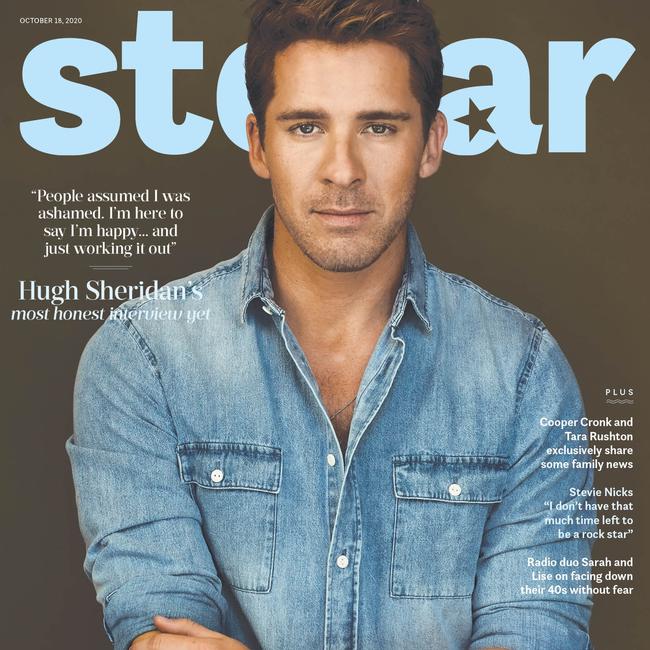
My advice to anyone who’s still figuring it all out is not to worry. Right where you are is enough. You don’t need to know all the answers today, or even tomorrow. I may not know exactly who I am until I’m 80. That’s totally fine with me.
I had zero self-confidence in my 20s and I hated what I saw from an early age. It’s not too late to go back and give love to yourself and try letting others know that they, too, are perfect just as they are.
Today I declare “I’m a human”, just like you, trying my best to navigate, grow and live in an ever-changing world.
I recognise now more than ever our pressing need to celebrate our common humanity – before we’re male and female, we’re already human, born in a state of being. From this vantage point we can accept we’re all the same yet honour our differences, be that ethnicity, gender, job, sexuality, religion, financial status.
None of us are the same but I see more togetherness than separation when I look at you. Humans shift and evolve as the world around us does, that’s part of what makes us special.
If there’s one thing I’ve learnt in 2020 it’s to relinquish control, embrace the unknown. It can all be confusing, especially when we’re taught we need to know who we are, but life happens, hearts break, we grow and change again.
If I could talk to my younger self, I’d say, “You’re fine. You’re on the right track. You’re enough. You’ll get there. You’ll work it out – or maybe you never will. It’s how you feel now that matters.” And that’s my message to you.

